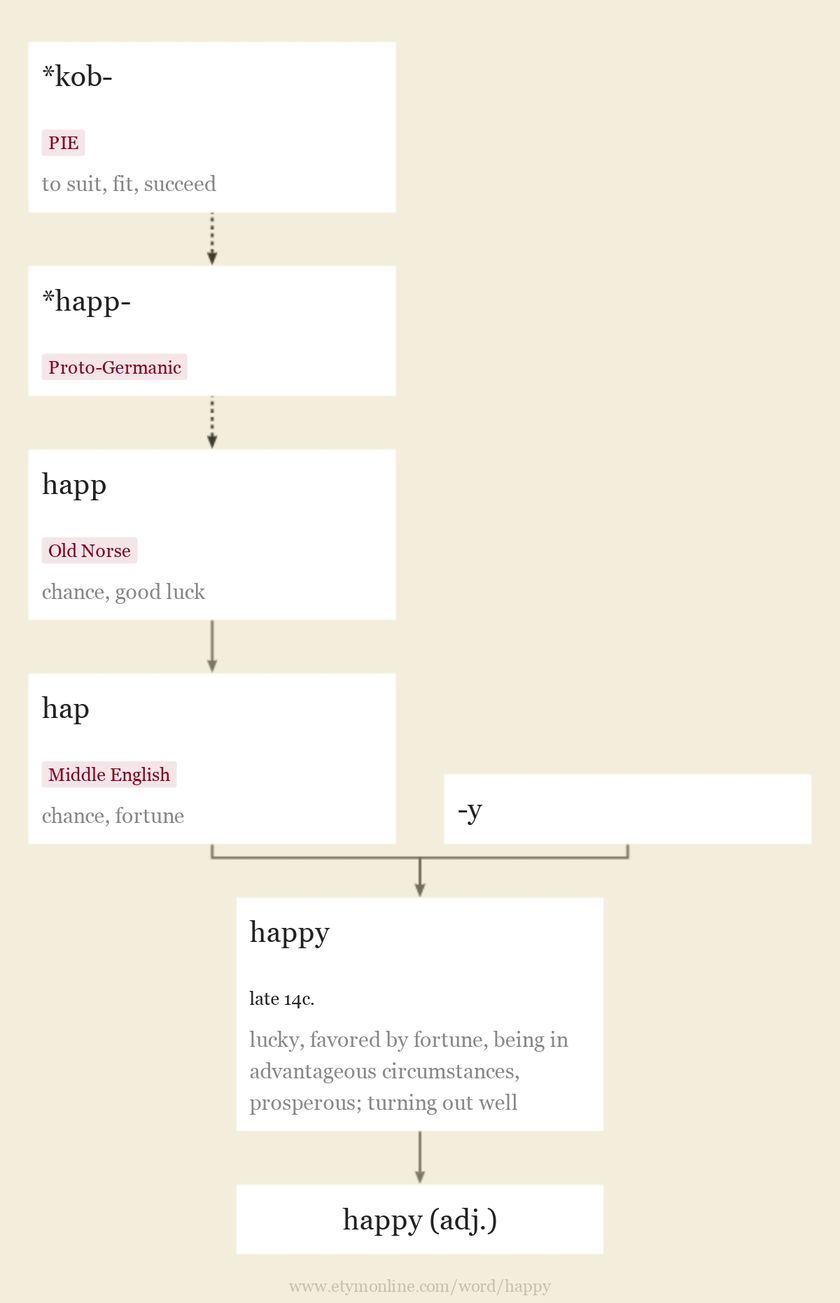| 词源 |
happy adj.late 14c., "lucky, favored by fortune, being in advantageous circumstances, prosperous;" of events, "turning out well," from hap (n.) "chance, fortune" + -y (2). Sense of "very glad" first recorded late 14c. Meaning "greatly pleased and content" is from 1520s. Old English had eadig (from ead "wealth, riches") and gesælig, which has become silly. Old English bliðe "happy" survives as blithe. From Greek to Irish, a great majority of the European words for "happy" at first meant "lucky." An exception is Welsh, where the word used first meant "wise." Happy medium "the golden mean" is from 1702. Happy ending in the literary sense recorded from 1756. Happy as a clam (1630s) was originally happy as a clam in the mud at high tide, when it can't be dug up and eaten. Happy hunting ground, the reputed Native American paradise, is attested from 1840, American English. Happy day for "wedding day" is by 1739; happy hour for "early evening period of discount drinks and free hors-d'oeuvres at a bar" is by 1961, said to be 1950s. Rock-happy (1945) was U.S. Pacific theater armed forces slang for "mentally unhinged after too much time on one island." Related: Happier; happiest. Happy family an assemblage of animals of diverse habits and propensities living amicably, or at least quietly, together in one cage. [Century Dictionary] happy adv. late 14c., from happy (adj.). updated on May 08, 2022 |
